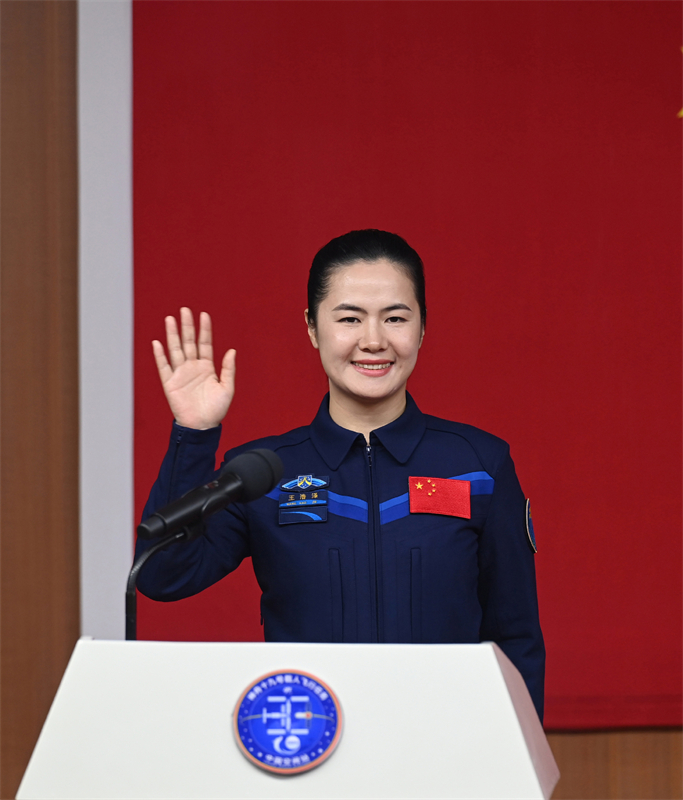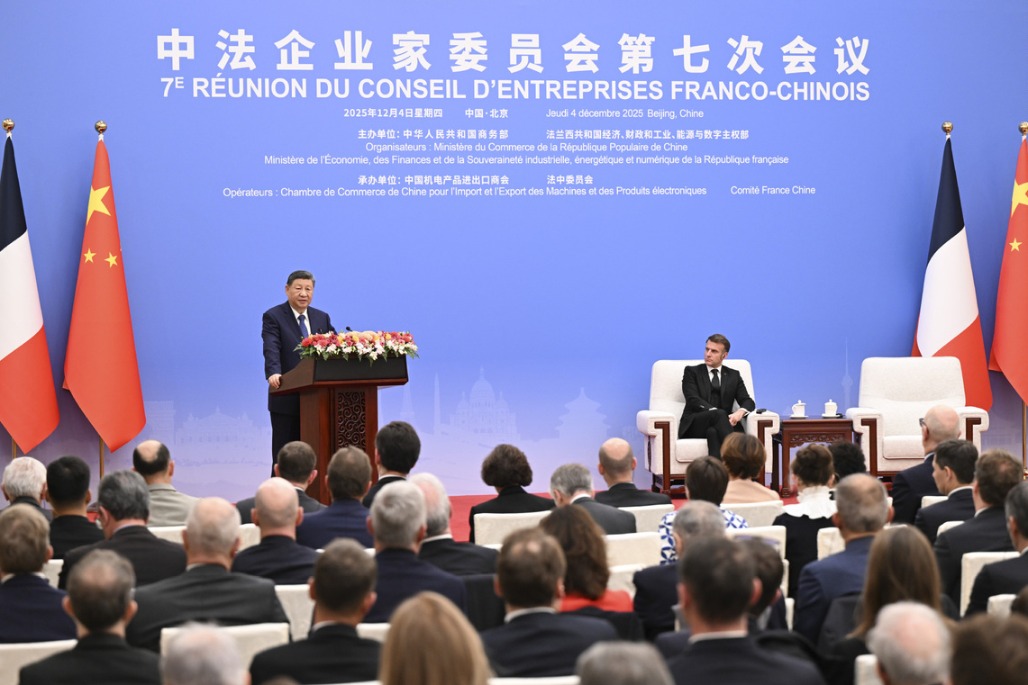Sole female member prepares for 1st flight
By Zhao Lei at Jiuquan Satellite Launch Center | China Daily | Updated: 2024-10-30 09:17

Lieutenant Colonel Wang Haoze, a crew member of the Shenzhou XIX mission and China's first female spaceflight engineer, thanked her postgraduate mentor as she prepares for her maiden spaceflight.
"I think I'm lucky to be part of the country's space program because I didn't major in any field pertaining to spacecraft or space sciences in my undergraduate and postgraduate programs," the 34-year-old astronaut said.
Wang said that she studied energy and power engineering at Southeast University's School of Energy and Environment before receiving a bachelor's degree in 2012 and then continued to take part in a three-year postgraduate program in thermal engineering at the same school.
"It was my postgraduate mentor who led me to a career in the space industry. Professor Gu Fan is very interested in spaceflight and often discussed relevant topics with us. He also encouraged his postgraduate students to apply for jobs in the space industry," Wang recalled, explaining that she was influenced by the professor and decided to join the spacecraft research community.
As her graduation approached, Wang submitted her resume to the Beijing Aerospace Propulsion Institute, China's major research body of liquid-propellant rocket engines and a subsidiary of the Academy of Aerospace Propulsion Technology.
After tests and selection procedures, she received an offer and started her job at the institute in the summer of 2015 as an engine designer.
Wang added that another reason she is grateful to Gu is because he taught her to treat every piece of work with attention and earnestness.
At the institute, Wang was part of the research and development of new models of rocket engines, a new field that she had never been involved in. Faced with new challenges and knowledge, she enjoyed learning and overcoming difficulties, which appeared as an intriguing game to her.
Hard work and perseverance always pay off. The first product designed by Wang was praised by a renowned expert. She gradually became the backbone of her team.
Three years after working on rocket engines, the designer was told by human resources colleagues that the country would recruit the third generation of astronauts.
"They convened a meeting of all institute employees who they believed were qualified, telling us about the recruitment and encouraging us to have a try. I was thinking, 'well, it's cool', but I had never imagined I would have an opportunity to become an astronaut," Wang said, adding she felt very lucky to be there at a time of rapid advances in China's space industry.
The selection of the third generation of astronauts began in May 2018 and involved three rounds of tests. About 2,500 applicants participated in the process that concluded in September 2020.
Finally, Wang and 17 male candidates were selected and divided into three groups: seven spacecraft pilots, another seven spaceflight engineers and four mission payload specialists.
At the Astronaut Center of China, Wang has faced grueling challenges. She has spent tough times with teammates in survival drills in deserts and at sea, and has endured a 72-hour sleep deprivation test.
Despite the difficulties, she said she has never considered quitting.
"My mom used to tell me since I was a little girl that there is nothing in the so-called belief that only boys can do certain things and girls can't. Though I am the only female in the group of third-generation astronauts and everyone here is very kind to me, I have never thought about getting privileges just because of my gender," she said.
The two female astronauts who have already made spaceflights, Liu Yang and Wang Yaping, often share their experiences in space missions with her, especially their knowledge about spacewalks, Wang added.
Looking into her first orbital journey, the astronaut said: "We have practiced our maneuvers so many times on the ground. I wish to fly to the space station as soon as possible to see what it looks like. I want to float inside Tiangong to experience the excitement of weightlessness. I also hope that I can complete each and every task successfully and make our 'space home' better."
























